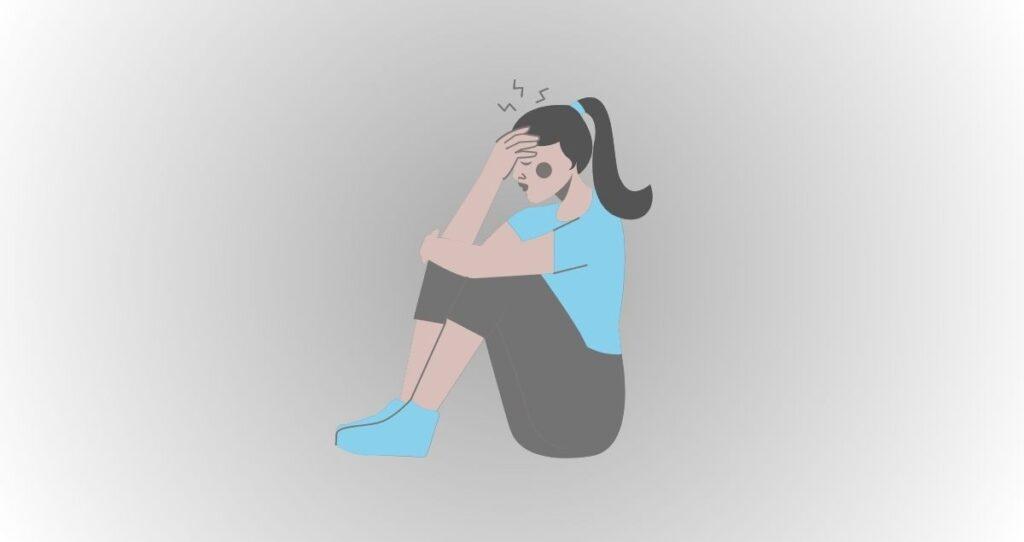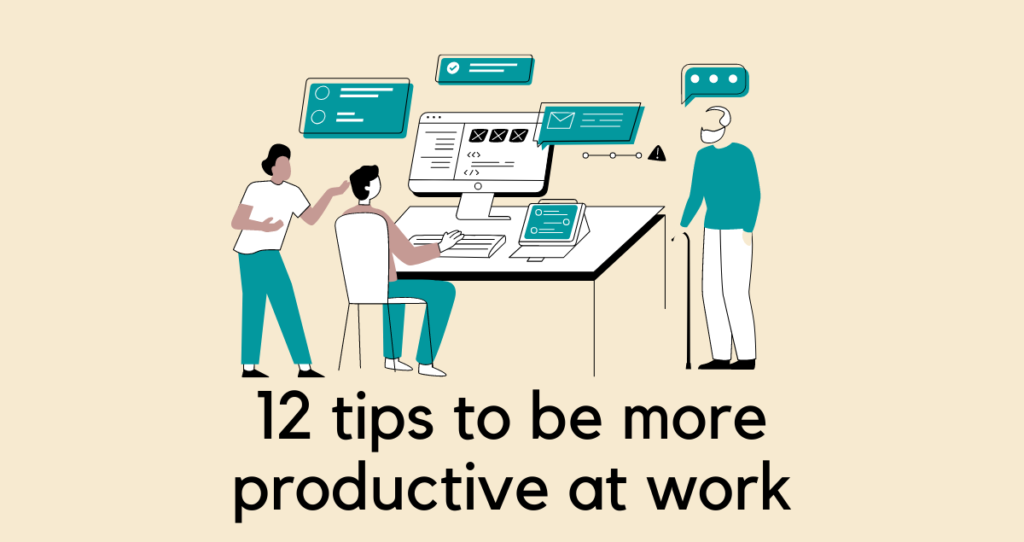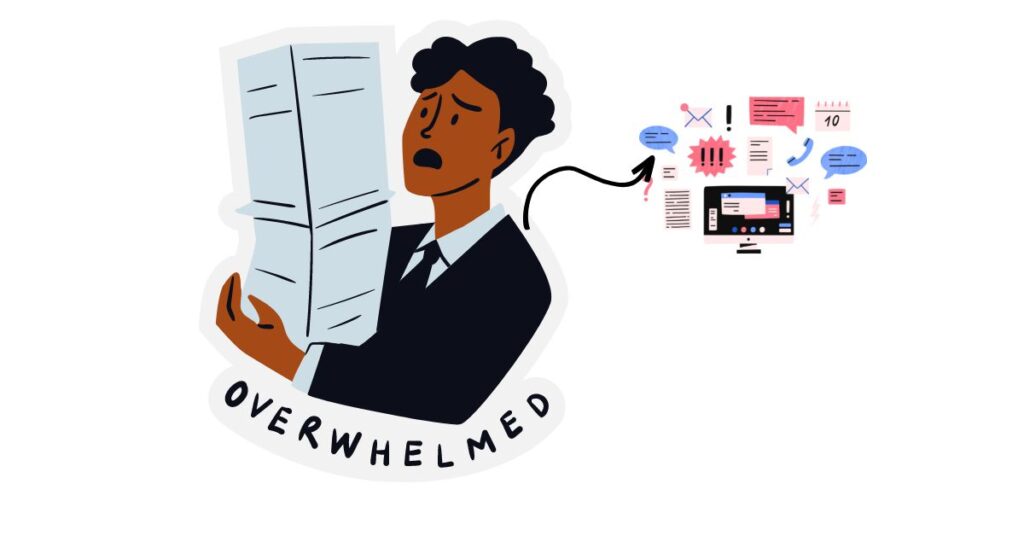Do you find yourself constantly worrying about your past experience or future events that you cannot even control? Perhaps you replay past mistakes in your head or feel anxious about what is to come. This is a common struggle for many people, but it doesn’t have to be a permanent one. In this article, we will share effective strategies to stop worrying and start living in the present moment and create a more fulfilling life.
Whether you are having financial worries, healthy problems, relationship issues, or simply dealing with a never-ending wave of life challenges, this article was written specifically for you.
We will explore practical tips, such as focusing on what you can control, practicing gratitude, and setting up life goals, as well as self-care practices such as mindfulness meditation, eating healthy, and seeking professional help.
Without further ado, let’s get started.
1. Accept what you cannot change
An effective way to stop worrying is to accept what you cannot change. This may sound easier said than done, but it is an essential step in letting go of past regrets and future worries. Instead of obsessing over things that are out of your control, focus on what you can control and take action in those areas.
For example, instead of worrying about a possibility of a recession in the near future, focus your thoughts on how to protect your investment and assets when it eventually happens. We all know that recessions happen every once in a while and you and I cannot stop them. This is out of your control. What you are in control of is to prepare yourself for a recession.
Another good example is when you are riding a boat in a rough sea. Instead of worrying about waves that you cannot stop, focus on securing your boat and position yourself in ways that allow you to ride the wave. You don’t have to get rid of the boat. You only have to ride it.
This mindset shift is incredibly powerful and can help you feel empowered in your life. As you focus your mind on things you can control, all your energy, feelings, and thoughts are utilized in finding answers instead of worrying about problems and future or past events you cannot control.
2. Focus on what you can control
Just as I mentioned in the previous few paragraphs, one of the most effective ways to stop worrying and start living is to focus on what you can control. This means shifting your attention and efforts towards areas of your life that you have the power to influence and take action in those areas. By focusing on what you can control, you can feel more empowered and less helpless in your life.
There are several practical tips you can use to help you focus on what you can control.
The following are practical tips to help you focus on what you can control and stop worrying
- Identify what is within your control and what is not. This can help you to let go of the things that are out of your control and focus on the things that are. For example, you may not be able to control the outcome of a job interview, but you can control how well you prepare for it.
- Set small and achievable goals for yourself. Small goals are easy to achieve which is essential for those who have been struggling with demanding challenges for a while. The benefits of having small goals are that they help you feel more in control of your life and provide you with a sense of purpose. Make sure that your goals are specific, measurable, and achievable within a certain timeframe. As you achieve these goals, you will get the motivation and excitement to keep going.
- Take action towards your goals. Setting up goals whether small or large is one thing. Taking action is another. You will only stop worrying when you are making progress in your life through goal accomplishments. The only way to accomplish your goals is by taking action. First, break them down into smaller steps and take one step at a time. Remember that progress is not always linear, and setbacks can happen. However, by focusing on what you can control and taking action towards your goals, you can make progress towards a more fulfilling life.
You might also like: 9 tips to be optimistic and achieve big goals
3. Live in the present moment
Living in the moment is an effective way to stop worrying. The problem is that you are probably constantly worrying about the future or regretting something from the past. However, the more you focus on the present, the more you can stop worrying and start enjoying life as it happens.
Here are a few tips to help you live in the moment
- Try to be more mindful. Being present means being fully engaged in what is happening around you. Take time to notice your surroundings, and immerse yourself in the moment. By focusing on the present, you can let go of worries about the future or regrets about the past.
- Try to slow down and enjoy the small moments. You are probably worried every day due to having too many ambitions. But, the problem with ambitions is that the more ambitious you are, the higher price you need to pay emotionally and physically. Instead of working yourself to death, take a break and celebrate the small wins that you have already. Even if you are not succeeding, you can still take a break from the main task and recharge your mind. Take a walk in the park, savor your morning coffee, or take a few minutes to breathe deeply. By taking the time to appreciate the present moment, you can experience more joy in your life and stop worrying all the time.
- Practice gratitude. When you are grateful for what you have in the present, you focus less on what you might not have in the future or what you regret from the past. A good way to practice gratitude is to compare yourself with others who are less fortunate. If you are worried about not having all support from your parents and hating them for it because you are not getting what you want, for example, compare yourself with an orphan who has lost all his/her parents and has no one to turn to. You might realize that you are better off having parents whether you get help or not than being an orphan.
4. Practice gratitude
I slightly covered gratitude in the previous paragraph as a way to help you live in the moment by appreciating what you have. Yes, it is true that gratitude is an effective way to help you let go of past regrets and future worries.
When you focus on what you are thankful for in your life, you shift your attention away from negative thoughts and emotions. Instead of dwelling on what you lack, you appreciate what you already have. This helps you live in the present moment and feel more content with your life.
By cultivating a gratitude practice, you can train your mind to be more positive and optimistic. Instead of seeing obstacles and challenges, you start seeing opportunities and blessings. This mindset shift can greatly help you stop worrying by reducing feelings of anxiety and stress.
Moreover, expressing gratitude can improve your relationships with others. When you show appreciation for the people in your life, you strengthen your connections with them. This sense of community and support can be a powerful source of comfort and inspiration.
5. Take action toward your goals
I previously mentioned that setting up goals is one thing and taking action on those goals is another. This is true. The majority of people who are always worried about their futures are those who never set up goals or those who never act on their goals. A goal without action become a dream. You are not a dreamer. Instead, you are a doer.
While setting up goals is an essential step to help you stop worrying and live your life, you will not achieve full results when no action is taken on those goals.
In order to truly move forward and let go of past regrets and future worries, you must take action toward your goals. By setting achievable objectives and taking proactive steps towards achieving them, you gain a sense of control over your life and a strong mental aptitude to make positive changes.
If you have been procrastinating actions on your goals, it is a time to hold yourself accountable and get moving. If you are afraid of losing, start with simple goals that are easy to achieve. Once you have achieved small goals, use your energy and excitement to tackle complex problems.
Again, what you are looking for is to build a sense of accomplishment and be in harmony with your money. The more goals you achieve, the less worried you will become.
6. Practice meditation
Meditation is one of the best techniques to establish a connection between your physical and spiritual bodies. Through medication, you can achieve self-healing, regain positive energy, strengthen your subconscious mind, and build resilience in the face of life-challenging problems. According to Mayo Clinic, medication can help you gain a new perspective on stressful situations, increase self-awareness, reduce stress and anxieties, and increase your imagination and creativity.
If you are constantly battling stressful events or constantly worrying about your past or future, start practicing mindfulness medication. This practice will help you bring your thoughts, energy, and attention to the present moment. In turn, your will start worrying less about things you cannot control such as future events or past experiences.
7. Start a self-healing journey by eating healthy, working out, sleeping well, and drinking enough water
A healthy and strong mind cannot exist in an unhealthy body. That is why if you want to stop worrying, you first need to start taking care of yourself at a physical level. You must embark on a self-healing journey by prioritizing healthy habits such as eating well, working out, sleeping enough, and drinking enough water.
When you fuel your body with the right foods, you give yourself the energy you need to face your problems head-on. Regular exercise is also a powerful stress reliever and mood booster, not to mention the myriad physical health benefits that come with it. Additionally, sleep and hydration are crucial for your body to function optimally, allowing you to wake up refreshed and alert, ready to face the day ahead.
8. Ask a professional for help
If you worry too much, seeking professional help may be the right path. Talking to a therapist or counselor can provide you with a safe and non-judgmental space to process your emotions and work through any unresolved issues.
Sometimes, you need an outside perspective to help you gain clarity and insight into your thoughts and behaviors. A professional can offer valuable guidance and support as you navigate difficult emotions and make positive changes in your life.
Seeking professional help can also help you develop healthy coping strategies and improve your overall mental health and well-being which are essential in dealing with too many worries.
9. Keep an emotional journal to further explore your feelings and thoughts
Keeping an emotional journal is an effective way to dig deeper into your emotions and stop worrying too much. This is a safe space where you can explore your feelings without judgment and reflect on your experiences.
Writing down your thoughts and emotions can help you identify patterns and triggers that cause you to feel worried or regretful. It can also be a way to release pent-up emotions, which can be therapeutic in itself.
When you journal, try to focus on the present moment rather than dwelling on the past or worrying about the future. Ask yourself questions like “What am I feeling right now?” and “Why do I feel this way?” Write down your thoughts and allow yourself to process them. This will help you understand yourself better and design a strategy to cope with difficult emotional challenges.
Opening up to a trusted friend about your worries can be challenging, but it can also bring a sense of relief to share your burdens. When you express your concerns to someone who cares about you and your well-being, it can help you gain a fresh perspective on the situation. you may find that your worries are not as overwhelming as you thought. Additionally, your friend may offer some helpful advice that you have not considered before.
It is important to choose someone you trust and feel comfortable talking to about your worries. This could be a close friend, family member, or even a therapist. Knowing that your worries will be kept confidential and that your friend will listen without judgment can help you feel safe and supported.
Furthermore, sharing your thoughts with others can also provide a sense of validation and connection. You may find that others have experienced similar worries or have felt the same way in the past. This can help you feel less alone and remind you that you are not the only one going through difficult times.
11. Start a personal growth journey
Knowing that you are constantly worried about your life is the beginning of solving your problems. But, to stop worrying on a daily basis, you need to start a personal growth journey. On this journey, you will build a strong mindset and resilience and manage your thoughts and emotions better.
Starting a personal growth journey can take many forms, from attending therapy, pursuing a new hobby, or joining a support group. It may involve taking small steps towards change or making significant life decisions. Whatever the path you choose, the journey toward personal growth requires you to let go of your fears and embrace uncertainty.
A personal growth journey can be intimidating or take longer to complete. For this reason, it is essential to practice self-compassion and self-care. You need to be patient with yourself, acknowledge your achievements, and learn from your setbacks. Personal growth is not a linear process, and you will encounter obstacles and challenges along the way. However, with the right mindset and support, we can overcome these challenges and continue to grow.
Why is it so hard for me to stop worrying?
It is difficult for you to stop worrying because your mind perceives potential threats and problems as a way to keep you safe and prepared. This natural protection mechanism is deeply ingrained in human psychology and has been developed over the centuries.
Additionally, constant exposure to different aspects of modern life, such as work-related stress, relationships, finances, and health, contributes to habitual worrying. According to a study conducted by Bas Verplanken and Naomi Fisher, published in Springer, habitual worrying is dysfunctional and can become a self-perpetuating cycle where excessive worry leads to anxiety, which in turn intensifies the worry. To break free from this cycle, the study suggested that practicing mindfulness can function as an antidote to the destructive effects of habitual worrying.
Besides mindfulness, it is critical to examine your thought patterns and develop healthy coping strategies for maximum results.
What to do to manage your emotions instead of worrying?
To manage your emotions and reduce worrying, start by identifying the root causes of your worries and understand their triggers. Replace negative thoughts with positive affirmations to shift your mindset.
Additionally, prioritize self-care through regular exercise, proper nutrition, and adequate sleep. Furthermore, practice mindfulness and meditation to cultivate mental resilience. Finally, surround yourself with supportive individuals and engage in activities that bring you joy and relaxation.
What is the 3-3-3 rule for anxiety?
The 3 3 3 rule for anxiety is a simple technique to help people manage their anxiety. According to Healthline, this rule involves focusing on three things you can see, three things you can hear, and three things you can touch. This grounding exercise helps redirect attention away from your anxious thoughts and brings awareness back to the present moment, ultimately reducing the intensity of anxiety.
How do I train my brain to stop overthinking?
If you are constantly overthinking due to overwhelming life challenges, it is essential to engage in activities that calm your mind down. To stop worrying and overthinking all the time, use the following strategies.
- Reflect on why you are overthinking by re-evaluation the situation
- Take a deep breath
- Take a walk to relax your mind
- Find distractions
- Practice positive affirmations, stay optimistic, and avoid negative self-talk
- Always keep your mind on the successes you have made when you are worried
- Do not try to change thinking that is outside of your control
- Practice gratitude
What is the 5-5-5 anxiety rule?
To stop worrying about a situation, try different breathing techniques. A popular breathing strategy you can use is the 555 anxiety rule. According to Psych Central, the 555 rule states that you breathe in for 5 seconds, hold your breath for 5 seconds and then breathe out for 5 seconds. This strategy allows you to slow down your thoughts and find mental relief.
What to do when you can’t stop worrying?
Worrying is a natural thing. But, worrying too much without stopping is not healthy and if you are in this situation is critical that you seek help and start a self-healing journey. According to the National Institute of Mental Health(NIH), if you are constantly worried and waiting for disaster to happen in your life in areas like health, finances, work or family, or even school, you might be struggling with an anxiety disorder called generalized anxiety disorder(GAD).
The good news is that this form of anxiety can be treated. According to NIH, you can talk to your healthcare provider for options and treatment. You may be referred to a mental health professional such as a clinical social worker, a psychologist, or a psychiatrist to make sure that you get the right treatment.
In addition to getting medical support, you might need to talk to someone you trust about your worries and practice the worry management strategies we covered earlier. For example, keeping your mind on things you are in control of, practicing gratitude, and engaging in wellness activities are some strategies you can use to stop worrying and live your life.
Is constant worrying normal?
Constant worrying is not necessarily normal, as it can indicate a heightened level of stress or anxiety. While it is common to experience occasional worry in response to life events, constant worrying may interfere with daily life and could be a sign of an underlying mental health issue. It is important to identify the sources of worry, practice stress-reducing techniques, and seek professional help if it becomes overwhelming or unmanageable.
What causes excessive worrying?
Excessive worrying can be caused by several factors, such as an individual’s genetic predisposition, personality traits, past experiences, and environmental stressors. People with a natural tendency towards anxiety and overthinking might worry more than others.
Additionally, certain life events or circumstances can trigger excessive worrying, such as financial stress, health concerns, or relationship issues. Moreover, the presence of an anxiety disorder, like generalized anxiety disorder(GAD), can also lead to constant and overwhelming worry.
Does worrying get worse with age?
Worrying can potentially get worse with age as a result of various factors, such as facing more responsibilities, health issues, and life changes. However, it is essential to note that the severity and impact of worrying may vary from person to person, and is influenced by their coping mechanisms, support systems, and individual experiences.
In some cases, people develop better emotional regulation skills and stress management techniques as they age, which can result in a reduction in worrying.









